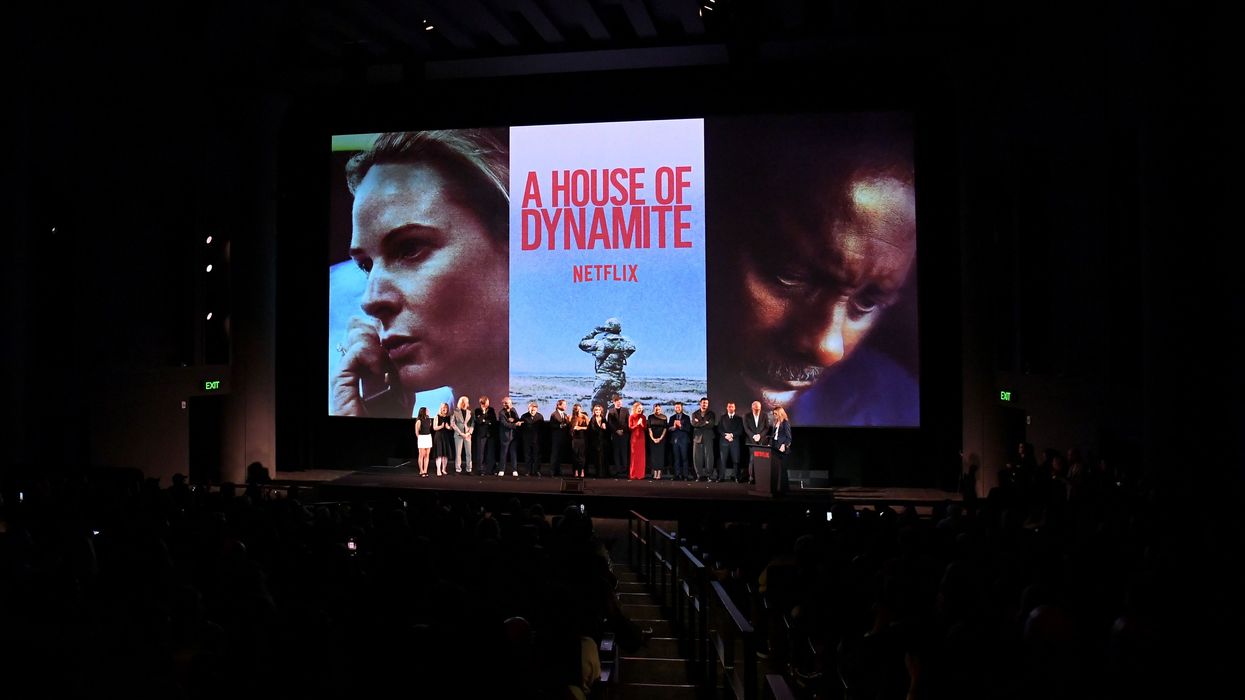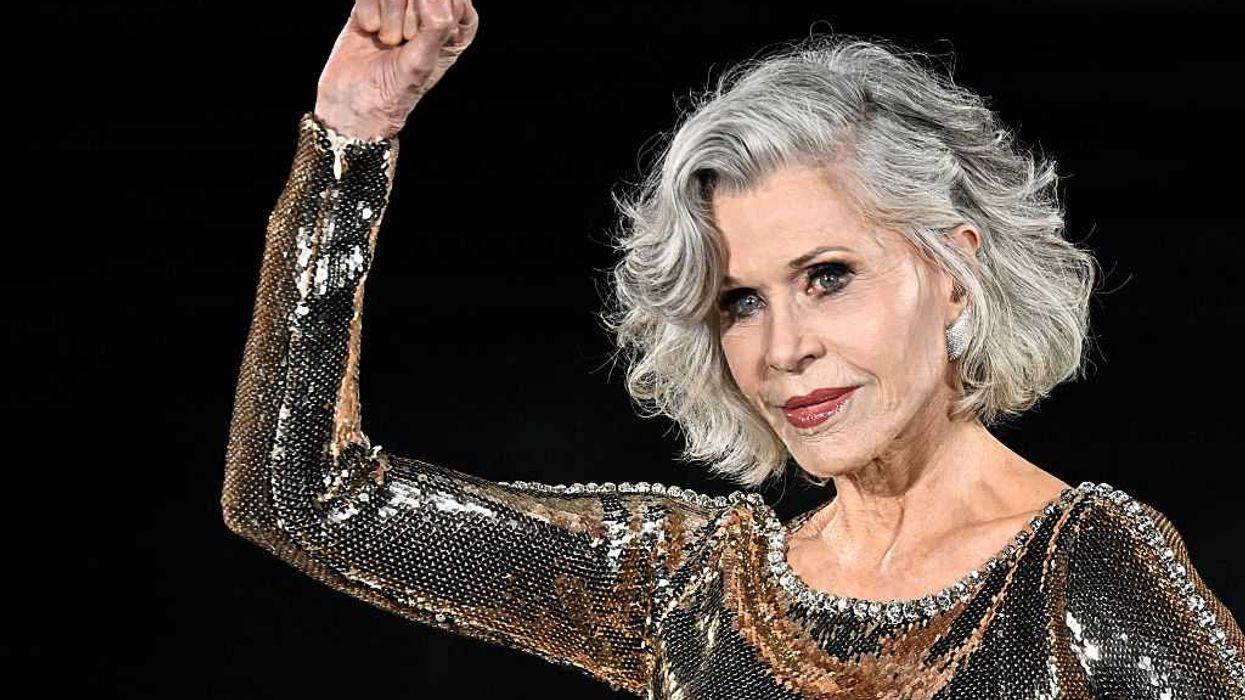Such films are hardly new, though their resurgence should give us pause. Since 1945, Hollywood has capitalized on the mix of fear and fascination unleashed by the atomic age. In response, studios have produced roughly 1,000 nuclear-themed films, a cinematic proliferation mirroring the buildup of nuclear arsenals (70,000 warheads by 1986). As scholar Jerome Shapiro observes, these works became “a statistically important part of the American filmgoer’s diet” for decades.
Yet atomic cinema has always been more than entertainment. It has served as both warning and witness, shaping a collective consciousness of the bomb. Within the secretive and anti-democratic architecture of the nuclear security state, these films often served as cultural critique and political resistance, piercing the veil of official classification, challenging the monopoly of defense experts, and democratizing a debate otherwise foreclosed to the public.
What we need now are stories that break the spell of American innocence.
Nuclear films have been canaries in the uranium mine. Each resurgence has coincided with waves of nuclear escalation. But they have also served as calls to action, catalyzing mass movements demanding disarmament. To understand what this revival signals, and what more is needed to reignite the anti-nuclear movement, it is worth revisiting the earlier cycles of Cold War filmmaking that were shaped by and informed nuclear and popular culture.
Dr. Strangelove and the Madness of Deterrence
The first major wave of atomic cinema emerged in the late 1950s and early 1960s. This was a time in which the United States had lost its temporary monopoly on nuclear force and both Washington and Moscow were producing, testing, and stockpiling weapons a thousand times more destructive than the now nearly obsolete fission bombs that had obliterated Hiroshima and Nagasaki. In less than a decade, the atomic bomb had evolved from a “city-killer” to a “nation-killer.”
The earliest films of this era confronted a growing public anxiety over radiation. They represented a response to official efforts to downplay the danger, as politicians prioritized the management of political fallout over the prevention of radioactive fallout. From the very beginning, there emerged attempts to trivialize radiation, none more infamous than General Leslie Groves’ 1945 remark that radiation poisoning was a “very pleasant way to die.”
By 1954, the Lucky Dragon incident had made the deadly consequences of nuclear contamination impossible to ignore. Science fiction movies such as Them! and Godzilla, both released that same year, translated these fears into monstrous allegories. Yet even as such films dramatized the terror of nuclear technology, official discourse worked to normalize it.
Kubrick’s dark satire exposed the Nazi-like madness underwriting “rational” deterrence, ridiculing mutual destruction while indicting the US for deepening the peril through its own policies.
Strategic war planners like Herman Kahn embodied the technocratic detachment of the emerging nuclear priesthood. By 1960, Kahn was publicly arguing that nuclear war was winnable and that even scenarios resulting in tens of millions of deaths would not ultimately preclude “normal and happy lives for the majority of survivors and their descendants.”
He also dismissed concerns about radiation, insisting that the numbers of children born “seriously defective” due to such exposure would rise by “only” 10%. Noting that there are still birth defects in peacetime, he concluded, “War is a terrible thing; but so is peace.” Such statements shocked the public, revealing the moral vacancy of those entrusted with preserving life and preventing death in the atomic age, fueling a growing fear that ordinary people might be sacrificed on the altar of Cold War credibility.
After the October 1962 Cuban Missile Crisis, when the United States came to the brink of serving as ground zero of nuclear annihilation, many Americans fully awoke to the insanity. The public backlash, led by SANE and Women’s Strike for Peace, that followed the near catastrophe helped push President John F. Kennedy to sign the Limited Test Ban Treaty of 1963, a rare moment when popular and political pressure combined to produce tangible reform.
In response also came Stanley Kubrick’s Dr. Strangelove (1964), one of the most indelible films of the Cold War. Drawing inspiration from figures such as Kahn, it confronted the suicidal nihilism of the defense intellectuals. Kubrick’s dark satire exposed the Nazi-like madness underwriting “rational” deterrence, ridiculing mutual destruction while indicting the US for deepening the peril through its own policies. These included stationing nuclear weapons in Turkey to attempting to overthrow Castro, actions that helped manufacture a crisis that threatened to extinguish the lives of as many as 200 million North Americans and even more Soviet citizens. This is not to mention the many millions dead attributed to what is perversely termed “collateral damage.”
Imagining The Day After
Two decades later, a new wave of films emerged amid another period of nuclear escalation. Their arrival in 1979 marked what many remember as the spark that reignited the anti-nuclear movement after more than a decade of dormancy. That year saw the rise of presidential candidate Ronald Reagan, whose rhetoric revived the language of nuclear confrontation, alongside two disasters that reawakened fears of radiation: the partial meltdown at Three Mile Island and the uranium mill spill at Church Rock, New Mexico. Together, these events rekindled public anxiety about the existential dangers of nuclear weapons and deepened fears surrounding nuclear power.
Reagan’s campaign and subsequent presidency again advanced the chilling notion that nuclear war might be winnable, even at the cost of millions of lives. This sentiment persisted despite scientists warning of “nuclear winter,” stressing that a nuclear exchange could devastate the atmosphere and result in “omnicide,” the death of all life on Earth. The mix of apocalyptic scientific doomsaying and bellicose political posturing sent fear soaring. By the early 1980s, polls showed that nearly half of Americans believed they might die in a nuclear war.
As historian Paul Boyer observed, even the most devastating portrayals inevitably fall short, since the only truly accurate nuclear war film, he wrote, “would be two hours of a blank screen.”
Released just 12 days before the disaster at Three Mile Island, The China Syndrome (1979) captured this mounting dread with eerie prescience. What began as a fictional thriller about a near meltdown quickly became a public relations catastrophe for nuclear power. The film’s portrayal of institutionalcorruption and bureaucratic negligence, alongside the industry’s efforts to dismiss it as propaganda, exposed official narratives on nuclear safety. In a post-Vietnam, post-Watergate America defined by cynicism and mistrust, the movie crystallized public anxieties about nuclear power and the broader dangers of corporate and governmental deceit.
Under Reagan, the popular energy unleashed by this moment coalesced into a mass movement. By 1982, anti-nuclear activism had reached its apex. On June 12, some 1 million demonstrators filled the streets of New York City for what remains the largest single protest rally in American history. Their message was unambiguous: The nuclear status quo was intolerable.
Their reach extended far beyond the streets. The Nuclear Freeze campaign mobilized communities across the country, while the 1983 ABC television film The Day After brought the horror of nuclear annihilation directly into American living rooms. More than 100 million people, including the president himself, watched as a bucolic Midwestern town of Lawrence, Kansas, emblematic of the American heartland, was reduced to a radioactive wasteland. The film remains one of the most searing depictions of nuclear war ever produced. Yet, as historian Paul Boyer observed, even the most devastating portrayals inevitably fall short, since the only truly accurate nuclear war film, he wrote, “would be two hours of a blank screen.”
But public pressure grew impossible to ignore. In a remarkable reversal, Reagan declared that “a nuclear war cannot be won and must never be fought,” beginning direct talks with Soviet premier Mikhail Gorbachev to pursue arms-reductions. This marked at least the second time that protests rendered potential nuclear weapons use not only morally unimaginable but also politically untenable (the other being the 1969 Vietnam Moratorium protests which helped dissuade President Richard Nixon from carrying out a contemplated nuclear strike against North Vietnam).
The Limits of the New Nuclear Films
The two major nuclear films of the past two years are significant cultural events. They have revived an apocalyptic imagination and a sense of nuclear consciousness that are essential if we are ever to confront the nuclear nightmare and end the arms race before it ends us. Yet they also fall short in critical ways, and risk being remembered as great films that stirred awareness but failed to inspire the resistance necessary to meet this perilous moment.
Oppenheimer, despite its cinematic brilliance, was a missed opportunity to reckon with Hiroshima and Nagasaki. Rather than compelling audiences to confront historical responsibility, it offered a familiar narrative of tragic necessity. The bomb had to be built; the bombings, though regrettable, were justified. The moral center of the story was not the victims in Japan but Oppenheimer himself, the tormented “American Prometheus.” The result was not reckoning but retreat into myth.
A House of Dynamite follows a similar trajectory. The film is powerful and unsettling, reminding viewers that any city, and the world, could be reduced to ashes within minutes. It captures the immediacy of the danger and the near impossibility of containing a “limited” exchange. Yet it ultimately retreats into American exceptionalism, reinforcing the comforting illusion that our nuclear arsenal exists only in a defensive posture to deter aggression while it is “our enemies” that recklessly endanger both us and the planet. In reality, the most perilous moments of the atomic age were less the product of foreign provocation than of American escalation.
To imagine the United States then as only a victim of a nuclear war is to obscure its role as the principal architect of prospective annihilation. For eight decades, Washington has held humanity hostage to the possibility of instant destruction, insisting that peace depends on the ever-present threat of total devastation, including in a US-initiated first strike. Moving beyond this suicidal logic of deterrence requires an honest reckoning with that history and the will to dismantle it.
What we need now are stories that break the spell of American innocence. The only sane position remains abolition, the dismantling of weapons for which there is no defense and whose risk to the continuity of human life is intolerable. Until that reckoning arrives, Oppenheimer and A House of Dynamite, and any other future films that fail to summon the courage to speak the full truth and mobilize resistance will stand as monuments to the mythology of American victimhood, stories about the terror of being attacked told by the most heavily armed nation on earth.
A House of Dynamite in limited theatrical release and will begin streaming on Netflix on October 24, 2025.




